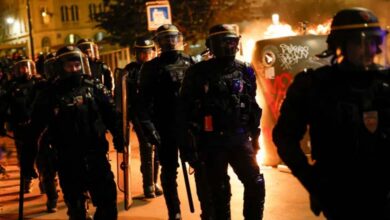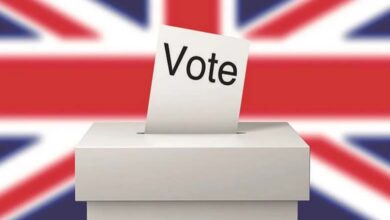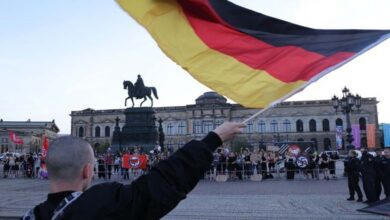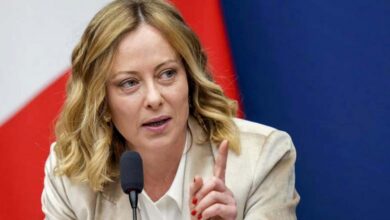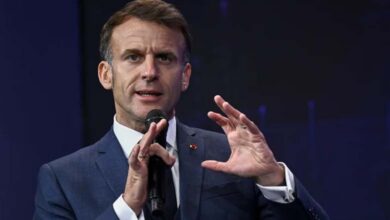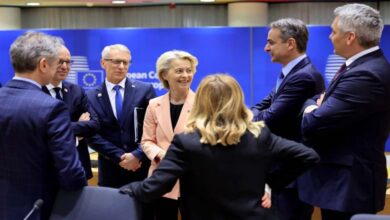New Protests in France: Public Anger Rises Against Lecornu
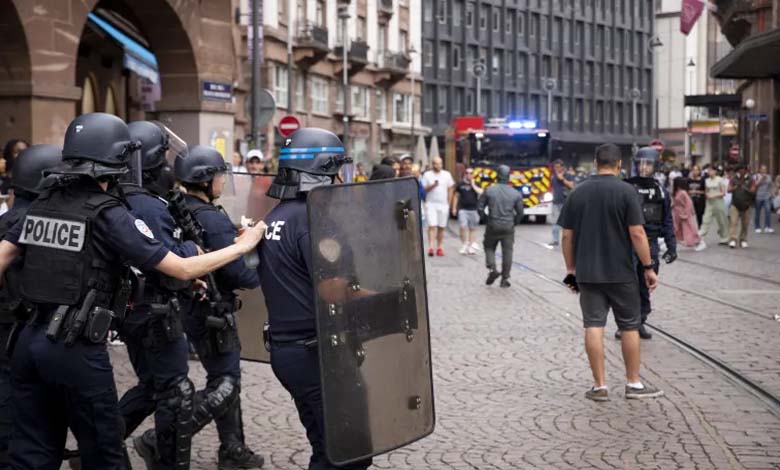
France’s new Prime Minister, Sébastien Lecornu, is facing a serious test of his ability to win public trust, as another day of nationwide strikes and demonstrations called by major labor unions takes place across the country.
Protests are intensifying in cities nationwide, with demonstrators demanding social and fiscal justice, along with a revision of controversial economic reforms.
This new wave of mobilization follows a disappointing meeting with the Prime Minister, pushing unions to escalate pressure through street action.
-
Protests in France: Marine Infantry’s Involvement Embarrasses Ministry of Defense
-
Did the Eiffel Tower burn in the protests in France?
Who called for the strike?
The strike was organized by the inter-union coalition, which includes major labor federations such as the CGT, the CFDT, and the FSU. Unions argue that the government “gives with one hand and takes away with the other,” rejecting the new budget law and demanding the repeal of the pension reform raising the retirement age to 64, higher taxes on large fortunes, and greater investment in public services and the ecological transition.
Who is participating?
The strike affects transport, education, healthcare, and the civil service. While smaller in scale compared to the September 18 protests, around 240 rallies and demonstrations are expected across France.
-
“Nail Protests”… France Racing Against Time to Control the Streets
-
What are the scenarios for the situation in France and the continuation of protests?
Transport and schools: limited disruptions
The Ministry of Transport announced that high-speed trains and most of the Paris public transport network (RATP) would operate normally, with some disruptions on regional trains and metro lines. In aviation, only 75 employees joined the strike, which may result in “limited delays.”
In education, the FSU union expects only about 10% of teachers to strike, down from 17% during the previous mobilization, meaning higher student attendance in schools.
Security on high alert
Interior Minister Bruno Retailleau announced the deployment of 76,000 police officers and gendarmes nationwide, including 5,000 in Paris to secure demonstrations scheduled to march from Place d’Italie to Place Vauban near the National Assembly. He emphasized that the authorities “will not tolerate any disorder or acts of violence.”
-
Suspension of Cooperation and Expulsion of Diplomats: A New Crisis Between France and Mali
-
France and Telegram: A “Encrypted” Relationship Despite Mutual Interests
Union voices: rising anger
CGT Secretary General Sophie Binet criticized the Prime Minister: “The government’s discourse is empty. Workers will not accept being deceived. Social anger is very strong, and anyone who thinks it will fade is mistaken.”
Marylise Léon, Secretary General of the CFDT, stressed that “unions form a barrier against the rise of the far right,” adding that what matters is “how willing employers are to share the burden.”
Political parties: between support and caution
Left-wing parties expressed support for the mobilizations, calling them “a natural response to unjust policies.” Governing parties, however, remain cautious, preferring to wait for the outcome of discussions with the government.
Although today’s protests may not match the intensity of September 18, they highlight that social unrest in France remains unresolved. Unions are determined to escalate, the government is betting on time, and the French public remains on edge.
-
Escalating Tensions: Is france preparing for military intervention in Niger?
-
France sparks controversy among Arabs after refusing entry to hundreds of girls to schools due to the Abaya
-
The “constitutional” pension law in France reaches the finish line with force
-
Iran is leveraging the French protests to accuse Paris of suppressing the demonstrators



